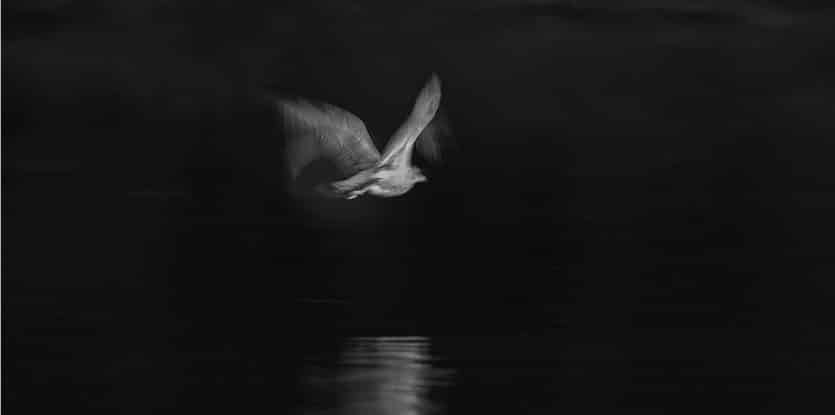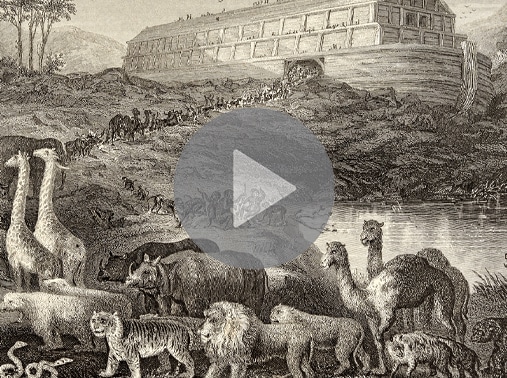How to Deal with Existential Loneliness
The High Holidays have come and gone and a new (Jewish) year is upon us. We have been immersed in inspiration and surrounded by meaningful days for the past two months, receiving daily messages of affirmation and motivation from 60 DAYS: A Spiritual Guide to the High Holidays.
So.. now what? Where do we go from here? From the beginning, I guess. As we leave the high-holiday season, the obvious question is: What do we do when we are not inspired and do not have the power of the holidays to lift us to a greater place?
I received an e-mail today from someone who had just finished using the book 60 DAYS. “I admit to you that this is the first time I have truly experienced the holidays. Thank you for bringing them alive. But I must confess that I am now experiencing a letdown. What do we do now, after the 60 days have ended?”
I replied to him that he shouldn’t worry, because we’re all in the same situation, and I would answer his question in this week’s e-mail. Here’s my response.
The holiday season is a rich one. Filled with awe and joy, renewal and sanctity, introspection and celebration, Rosh Hashana, Yom Kippur, Sukkot and Simchat Torah offer us a profound spiritual experience.
But in direct disproportion to the great holiday high is the contrasting down that we inevitably experience as the inspiration dissipates and we reenter our conventional routines.
Cheshvan, the month following the holidays, is the only month in the year devoid of any holidays. No wonder that the mazal (sign) of this month is Scorpio. The venomous scorpion represents the challenges of material life which begin in Cheshvan. Materialism can be toxic if it is not tamed and channeled. Indeed, throughout history many of the worst persecutions of Jews began in this month of the scorpion.
What is the point of giving us a month that is so devoid of holidays? And especially in such stark contrast to the preceding month filled with holidays.
Cheshvan is the month of existential loneliness. It may be empty of special days, but it has one thing going for it: This month reflects the nature of life on earth. So don’t worry my friend. You’re not alone in your loneliness. We’re all in the same existential boat.
But what is the answer to the question: What purpose does this month serve?
One year over Sukkot I had the honor to sit in a Sukkah with a distinguished Chossid, Rabbi Zalman Posner, who shared with me the following moving story. As a young man he was once summoned by the previous Chabad Rebbe, Rabbi Yosef Yitzchak Schneersohn. The year was 1949, and as Reb Zalman told it to me, it was hard to understand all the words of the Rebbe, so it was crucial to also watch his hand gestures.
The Rebbe began dramatically (in Yiddish): When a neshomo (soul) has to come down to Earth, it doesn’t want to go. Why? Because heaven is warm and comfortable, while life on Earth is cold and dark (“kalt un finzter”). What happens? In heaven the soul is ordered: “You must descend below.” And to demonstrate the point the Rebbe took his index finger and repeatedly pointed downward in a deliberate motion, “you must go down below into the dark and cold world, and there you must bring light (“machen dort lichtig”).
The Rebbe then continued and instructed Reb Zalman to travel on a mission (shlichus) to a certain city, which may not be as comfortable as staying home, with the objective of beginning some spiritual light to the city.
“To this day I never forget,” Reb Zalman told me, “the Rebbe’s finger pointing downward, ‘you must go down and illuminate the dark and cold world.’”…
Ultimately, Reb Zalman would settle in Nashville, Tennessee, where he is a Rabbi and educator until today.
I was deeply moved by hearing his first hand account. Firstly, because it is a consolation to know – and to validate – the fact that this world is dark and cold, and that we were deliberately sent here to illuminate our surroundings. Secondly, that we have the power to illuminate the world; that ultimately light is stronger than darkness. We just need to never forget our mission.
Noah too was faced with this dilemma. After seeing the world self-destructing due to human corruption, Noah was terrified of reentering the world and beginning anew. He actually had to be commanded by G-d, “leave the ark,” and commanded, “be fruitful and multiply.” Though Adam was already given this command, it had to be reiterated to Noah after the flood. Because after the human race had abused its contract with existence and forfeited its right to exist, the contract had to be renewed – a renewed commitment to “be fruitful and multiply” and transform the world into a Divine home.
This also explains the mysterious episode following the flood. Noah first sends out the raven to check out if the land has dried after the flood. He then sent a dove, once, twice, three times – until the dove no longer returns, indicating that it had found a dry resting place.
The raven represents gevurah – severity/judgment/discipline. The dove represents chesed or tiferet – love/sensitivity/compassion. Noah felt that after the people had abused G-d’s gifts and corrupted the entire world, now the only way to go is with severity and discipline. Like a delinquent child, Noah felt that the only way to begin life anew after the colossal failure of mankind was through the “raven’s” law and justice. Since “the inclination of man’s heart is evil from his youth” (Noach 8:21), the predominant force in life has to be aggressive judgment and discipline.
But Noah was wrong. It was not the aggressive raven but the compassionate dove that discovered the dry land. It is the dove that first returns with an olive branch in its beak, and then becomes the first creature to return to dry land, demonstrating that even after the great crimes and corruption of the flood generation, we do not give up hope on the human race. Even after bitter disappointment, even after destruction we do not become bitter and hardened. Yes, we have been humbled, but we still recognize that the primary driving force in life must be love and compassion. Discipline is necessary, but only as a sub-set of love.
[This is true both on a personal level and a collective historical one. One Kabbalist explains that the raven represents the world of aggressive Esau – father of the Western/Roman world. The dove represents Israel (Megaleh Amukot, ofen 40). In history first aggressive Esau would rule, but slowly, slowly, as the world becomes more refined, it gets acclimated to the balance of the tiferet of the dove.]
So, the next time you face a dilemma, a challenge, the next time you encounter a disappointment, the next time you witness the pettiness, greed and corruption around you and wonder whether we can ever overcome this challenge – visualize the Rebbe’s finger pointing downward: “You must go down into the cold and dark world, and there you must bring light.”








Ive been in the cold and dark world and back to community at large. I brought light and still its cold and dark. Why?
It seems Esau is having trouble relinquishing its power hold. We need a few more Israelites who will take the initiative and harmonize the environment through acknowledging the true place of Judaism, Torah and mitzvot.
To Mr. Blair,
Bringing light is not so simple. For example, if you did a good deed, and helped someone, then that person was helped, and no one can take it away, you did right. However sometimes, we get involved in personal motives for good deeds, which sullies the good deed. Or, we think its helped someone but in reality it did the opposite.
The only way to be sure we are bringing light is to first separate completely from darkness. We do this through studying and internalizing the appropriate parts of Torah through learned teachers of Torah (the Seven Laws of Noah, for gentiles, and 613 Laws for Jews), having an appropriate mentor, and the honesty to grow.
Good luck on your journey to stay in touch with the Light.
There was a King, and he gathered His subjects, and said I would like to thank you for visiting me when I was lonely, tending to me when I was sick, clothing me when I was naked.
His subjects bewildered looked at one another and said to the King, we do not remeber doing these things or even seeing you in the conditions you talked about and the King said to them, when you did these things to those in my Kingdom, you did them to me.
What do we bring, darkness or light in a groping world.
“Ultimately, Reb Zalman would settle in Nashville, Tennessee, where he is a Rabbi and educator until today.” Rabbi Posner was nifter in 2014